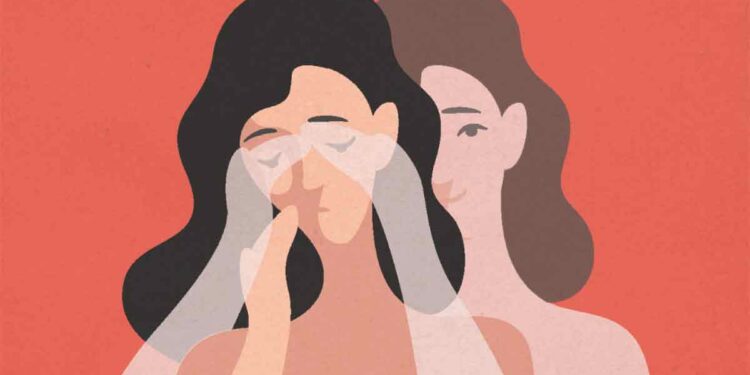The symptoms of chronic anxiety are explained in this page. Stress hormones (adrenaline, noradrenaline, and cortisol) cause your heart to beat more rapidly and vigorously when something startles you suddenly, like a loud noise. It can appear to be beating unevenly to you (heart palpitations). You are gradually more likely to develop hypertension, cardiovascular disease, hardened arteries, high cholesterol, stroke, and heart attack if it happens frequently.
Panic and anxiety disorders Anxiety Physical Symptoms
Here are some details concerning chronic anxiety symptoms that you may learn about in this article:
Speedy Breathing
When you’re scared or upset, your heart may start racing, and you might also start breathing more quickly or like you’re running out of air. Some people breathe so quickly that they lose consciousness or feel dizzy. If you already struggle to breathe due to asthma, lung disease, chronic obstructive pulmonary disease (COPD), or other illnesses, it could be very serious.
Action: Fight or Flight
It’s a collection of symptoms you experience when you react fearfully. Your fear triggers the release of specific hormones, which then convey signals through your spine, nerves, and brain. Your arms and legs are flooded with blood and fuel (glucose) as you get ready to fulfill the risk by engaging in combat or running away. Your breathing and heart rate quicken. Additionally, you may get shaky and unstable.
A tense body
When you are anxious, your body starts to protect itself. Your muscles stiffen at the same time when you’re actually astonished. Once the tension has subsided, they usually relax, but if it happens frequently or if you are constantly nervous, your stiff neck and shoulder muscles may be the source of headaches, including migraines. Yoga and other forms of deep breathing can help you relax.
When you’re scared or upset, high blood glucose tension hormones might provide you a quick boost of this fuel. If you need to flee from danger or confront it, it can be helpful. Typically, your body stores the additional sugar. However, prolonged or intense anxiety may cause your blood sugar to remain excessively high. This is a strong indicator of diabetes, just like a heart condition, stroke, or renal disease.
Sleep Problems
You may wake up at night due to worry. Did I cover the power expenses? Has the pet dog been forgotten to be fed? Poor sleep can significantly worsen anxiety, especially if you have to go to work the next day. By dividing problems into manageable pieces, an order of business may reduce anxiety. And healthy sleep habits may help. Try to sleep and wake up at regular times. Sleep in a futuristic, gloomy bedroom. Similarly, take a gradual descent during the night to wind down to bedtime.
Problems Combating Germs
When you worry, your body might not be able to fight illnesses as efficiently. Your body’s immune system, which serves as the body’s line of defence against pathogens, can be reduced in action in as little as thirty minutes by simply thinking about something that made you angry or unhappy. Long-term stress and anxiety can have even more of an impact on the immune system, making it more difficult to fight off diseases like the flu, herpes, shingles, and others.
Uneasy Stomach Stress and anxiety might give you the impression that your stomach is knotted and resistant. Some people experience nausea and even pass out. If this keeps happening, you can get abscesses in your stomach and digestive problems, including irritable bowel syndrome (IBS). If you experience extreme stomach pain or vomiting when you’re stressed, consult a doctor.
Bowel Issues
Being anxious and stressed out might cause constipation. It’s unclear why, but anxiety may affect how you use the muscles that control how you poop, according to doctors. You may also experience diarrhoea as a result of the altered way that certain nutrients are absorbed by your body. If you already have IBS or another digestive issue, your gut can be particularly tense. In order to manage anxiety triggers in your life, consulting your doctor may be helpful.
Gaining Weight
Anxiety might occasionally cause you to eat more, which is part of the problem. Additionally, it might encourage you to try calorie-dense foods with high fat and sugar content. Additionally, these shops appear to “work” in that they reduce stress and anxiety symptoms, which increases your desire for them. Over time, excessive stress and worry might damage your body’s tension response and cause you to gain some unwanted weight.
Male Sexual Problems
Stress might first set off your fight-or-flight response, which produces the hormone testosterone. You might feel feistier as a result. Cortisol, a different stress hormone, can, however, have the opposite impact. Concern can actually slow down or stop your body’s natural response to the desire for sex, modify or reduce your sperm, and decrease testosterone over time.
Female Sexual Problems
You may become exhausted and distracted by worry, which will reduce your desire for sex. The stress hormone cortisol may also reduce desire. A lot of strain might mess with your cycle. It can make them longer or more unpleasant, or it can result in missed or unequal durations. Premenstrual syndrome, often known as premenstrual cramps, bloating, and mood changes, may become worse in the week leading up to your period (PMS). Additionally, anxiety and stress can make it more challenging to get pregnant.






